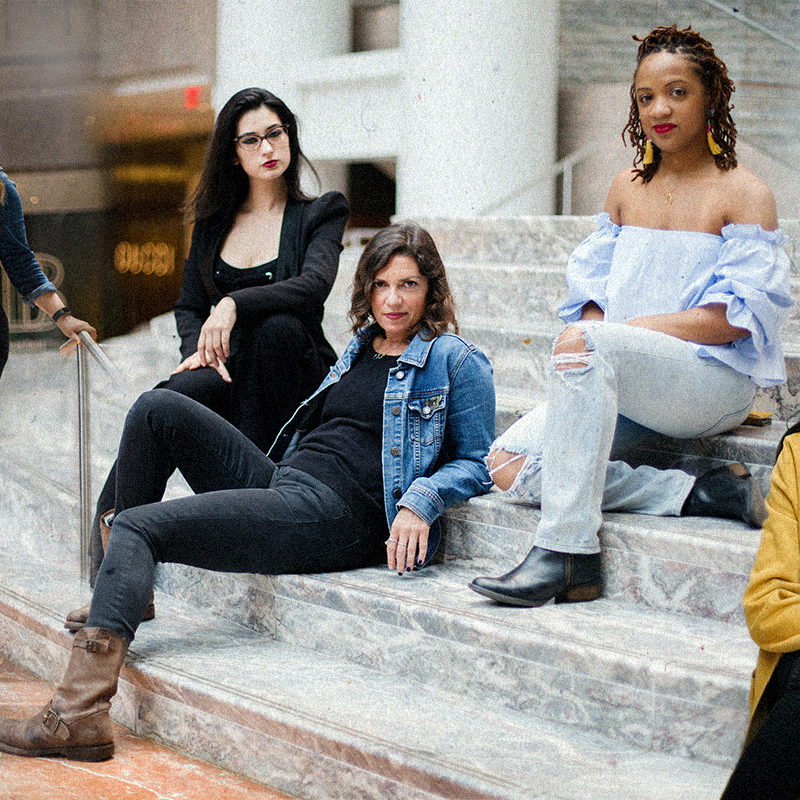Director Roundtable: on developing new work, mentorship, authority, and more
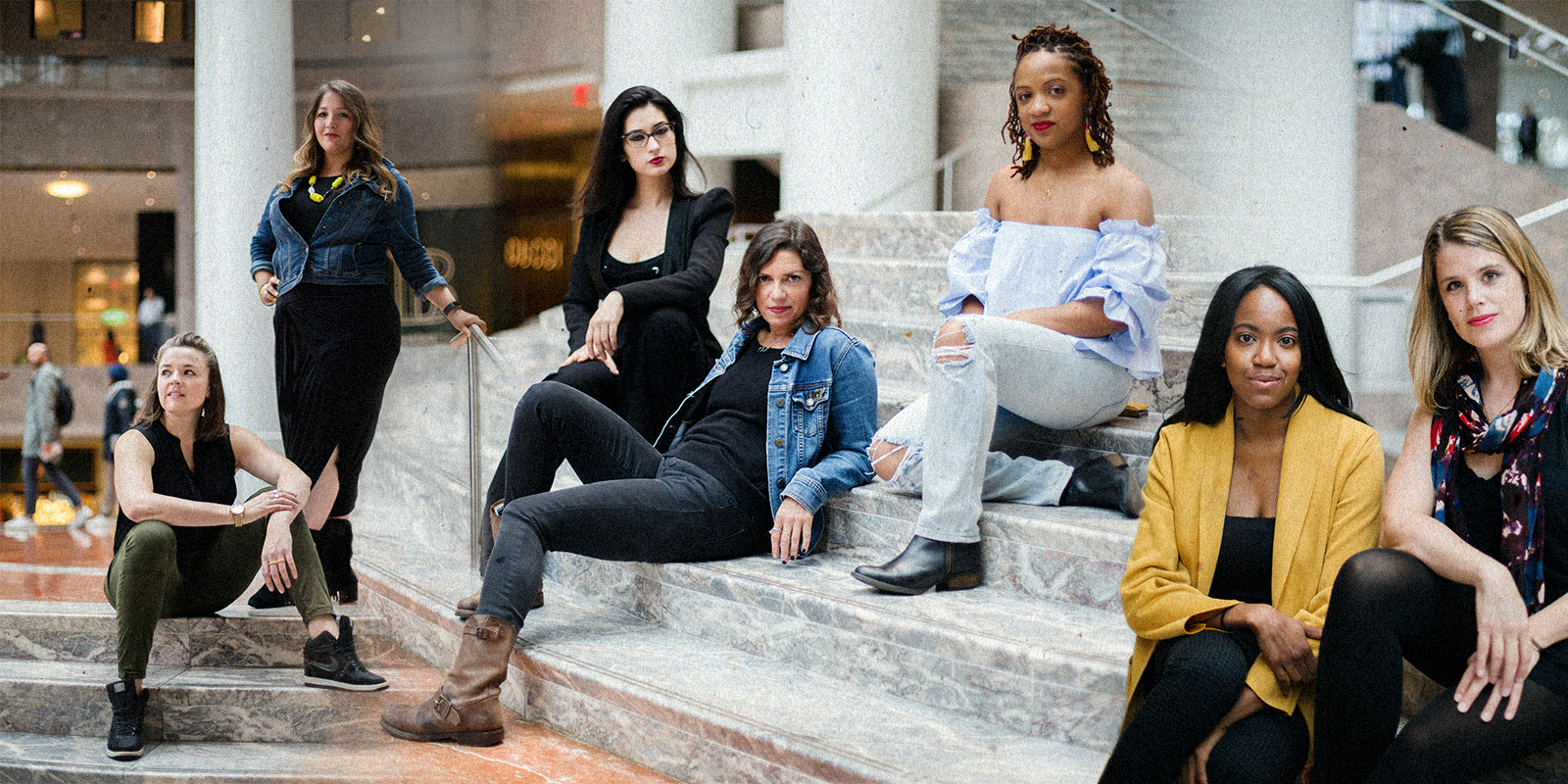
Written by Victoria Myers
Photography by Tess Mayer
October 26th, 2017
Theatre directing remains a mysterious practice with many theatergoers not really knowing what it is a that a director does—or basing their assumptions off of that high school drama teacher who told you where to stand and acted out the part for you. Yet directing, with its many components, remains one of the hardest disciplines to master. We recently gathered a group of directors ranging from emerging to having directed on Broadway—Sash Bischoff, Kel Haney, Candis C. Jones, Rachel Klein, Kimberly Senior, Ilana Ransom Toeplitz, and Whitney White—to talk about their outlooks, mentorship, having authority, and more.
To start, what’s everyone’s outlook as a director? What are you all interested in at the moment?
Kimberly: I feel like my outlook as a director is constantly evolving, but right now, I feel like I’m interested in doing work that feels provocative, and maybe moving the conversation in advance of the culture, much like theatre was historically, and then I feel like theatre got really shy and was like, “We need to be just like the culture and fit in.” And now I’m like, how are we able to have conversations or put things on the stage that are scary to us, or that we don’t know how to talk about, because the theatre should be a safe place to create dynamic and explosive conversation.
Whitney: I think that right now, my outlook as a director is focused on questions. I just have so many questions about everything going on right now, and I’m trying to do as much work as I can that’s letting me interrogate one big question at a time. Why is this this way? Why is racism this way? Why are we doing this? Why do we do this over and over again? Why have people been doing this for hundreds of years? Why are we caught in these cycles? That’s just what I’m obsessed with right now, is trying to look at some of this stuff and some of these questions.
Candis: My outlook is always changing as well, but something that is always on my mind is our space and our world. So socio-politically, where we are in the moment, but also thinking about how we create spaces for each other and create dialogue, and make safe spaces for our culture that’s completely depressed. Nationally, I think we are depressed, and so how can we make a space where we all feel that we have stake in the conversation, and how do we create a space where we are getting somewhere in the conversation, and learning things that we don’t know, but also creating spaces where we feel empowered as a people? I also am always excited by work that celebrates black people and that really, really radicalizes the love and the joy and the power of our people; that’s something I’m always trying to spotlight.
Kel: I’d say something that sticks with me in my career, and in the work that I’m making, is that I feel like I’m constantly searching to tell as many diverse stories as I possibly can, and I want to tell stories of people whose stories aren’t being told, and I want to do it in a way that feels so specific that it then feels universal to an audience. My favorite thing is having an audience come and watch a play and relate to a character with which they thought they had nothing in common. So that’s something that I’m focused on now more than ever.
Sash: I tend to focus mostly on new works. I would say that my work as a director is characterized by work that is both stripped down and minimalist, and also examining bold theatricality and ways in which we can redefine that and find new ways to discover theatrically heightened works. I’d say that something that’s really important to me is never to moralize or present an answer to an audience, but rather to ask questions.
Ilana: I am a director-choreographer, and I do mostly new works, new musicals, and musical comedy. I really love over the top musical comedy, specifically dark comedy, because it takes us to an uncomfortable place and challenges us to laugh while we’re there, which I think stretches a muscle of resilience and that’s how I think we can collectively grow. Lately, I’ve been gravitating toward stories that challenge who we see as a hero. I think reevaluating how we see our heroes—specifically our female heroes, because we tend to only see them as a Madonna or a whore—so seeing beyond that and seeing our females as imperfect people, and seeing the acts of bravery that they can accomplish and the great stories they can tell.
Rachel: I am a director-choreographer. I also often work in the development of new musicals, specifically large-scale musicals; I don’t get hired to do the two character shows often. And one of the joys that I find in my perspective on the work is integrating layers of visual storytelling, the connectivity of when the scene flows into the song, and when is the right moment to elevate the energy in the stakes. Epic theatricality is my initial perspective and finding new ways to share those ideas.
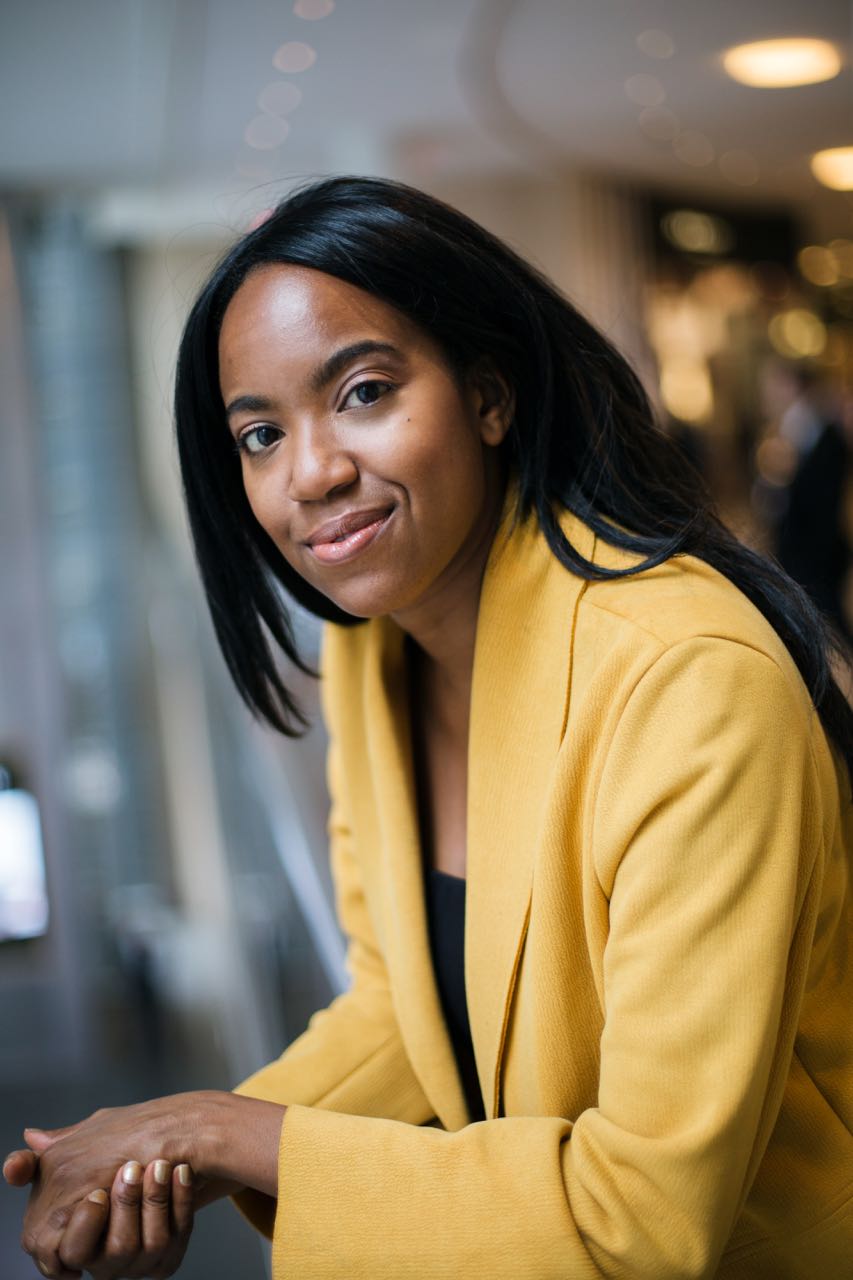
At this current moment in time, what part of the development process or the rehearsal process are you all finding the most useful, most interesting, or most fruitful?
Kel: What I’m learning at the moment is how to really enjoy the time that I’m actually in rehearsal with the actors. I’m doing something right now where I put my phone in airplane mode whenever possible and I’m just trying to be as present as I can, and trust that all the work has happened that needed to in pre-production, and everything is going to come forward in the way it needs to. And really staying as present as I can with the actors—and I do primarily new work, so also with the writer in the room. I’m just trying to treat myself to that five or six or seven hours that I have on that day.
Whitney: Most of the things I’ve been doing in the past year or two have been adaptations with original music that I write with this sound collective that I have. We’ve been having this developmental process in which we’ve got the script, and we’ve got the jams, and we know kind of what we want it to be, but then we sit down and that initial moment when we play through everything and hear everything, I’ve been very, very thankful for that first little leap. And even for the plays I’ve been working on without music, that first gesture that we all do as a group, when you kind of step off the edge, I’ve been very thankful for that, because people respond to new things so differently, and I’ve just been watching the ways different groups of actors and musicians that I work with respond to that first leap. And I love the panic and the delight and the scramble, and all that stuff.
Rachel: One of my favorite parts is the tech process. I know that can be incredibly stressful for most directors, but for me when I can see it come together, it infuses a new energy into the actors and what they’re doing and how they’re telling the stories creatively. That phase in the collaboration where you can see things coming together and either bursting or falling apart, and then you have to problem solve and troubleshoot on the fly is exhilarating, albeit stressful.
Sash: My candy, for sure, is tech. That’s where I’m just so happy, but I would say that my new discovery that I’m sort of working through and figuring out is the part of the process where you’ve built the story, you’ve sort of done it piece by piece, and then you start to put it together again. And for me, what’s really thrilling and fascinating and also terrifying, is how do you distance yourself, how do you retain a new perspective and look at it fresh, and be not precious about it and say, “This isn’t at the beating heart of the story I’m trying to tell”? How do I redo that, how do I reimagine this in order to make it coalesce?
Ilana: My favorite part of the process is that sweet spot a week and a half into the rehearsal room, when you’ve taught the music, and you’re beginning to get on your feet, and the table work is done, and everybody’s just chomping at the bit to get going and to get out of the gate, and anything is possible. And you have blown up the fullest balloon possible, and now you’re starting to deflate the balloon, and you figure out what shape it’s going to take and you’re figuring out your vocabulary together, and everybody’s beginning to get on the same wavelength. That is the most exciting thing to me.
Kimberly: I’ve been listening to what everybody’s saying and I’m like, “Oh yeah that, I love that… Oh no, I love… Oh, yes, me too.” I think that some of it is very moment-specific, so I’m going to answer the question in a more macro way, which is something that is speaking to what I was saying about my outlook right now: I’m wondering, how do I engage the staff of the theatre where I’m working? How do I engage the community outside the door that maybe doesn’t feel welcome at the theatre? Then, once the show is running, continuing that conversation and being civically responsible for it and what that means. And it’s actually put me in a position of much more listening than I’ve been in before, and much more about what are the reverberations, what is the impact, rather than just the intention of the work.
Candis: I would agree. That would probably mean that exciting conversation starts way before anyone gets there. It’s like what happens a year ahead of time when you’re picking the play and you’re talking to the producers and artistic director about their season and their vision, and who the play is for, that means that that moment happens way ahead. Day one is also exhilarating because everyone’s freaked the fuck out. No one knows what’s going to happen. And you can be anyone. You can show up any way, just for that process, but then also there’s the year ahead of time when you’re thinking about who’s coming into the room and who the people are who are coming to see the show.
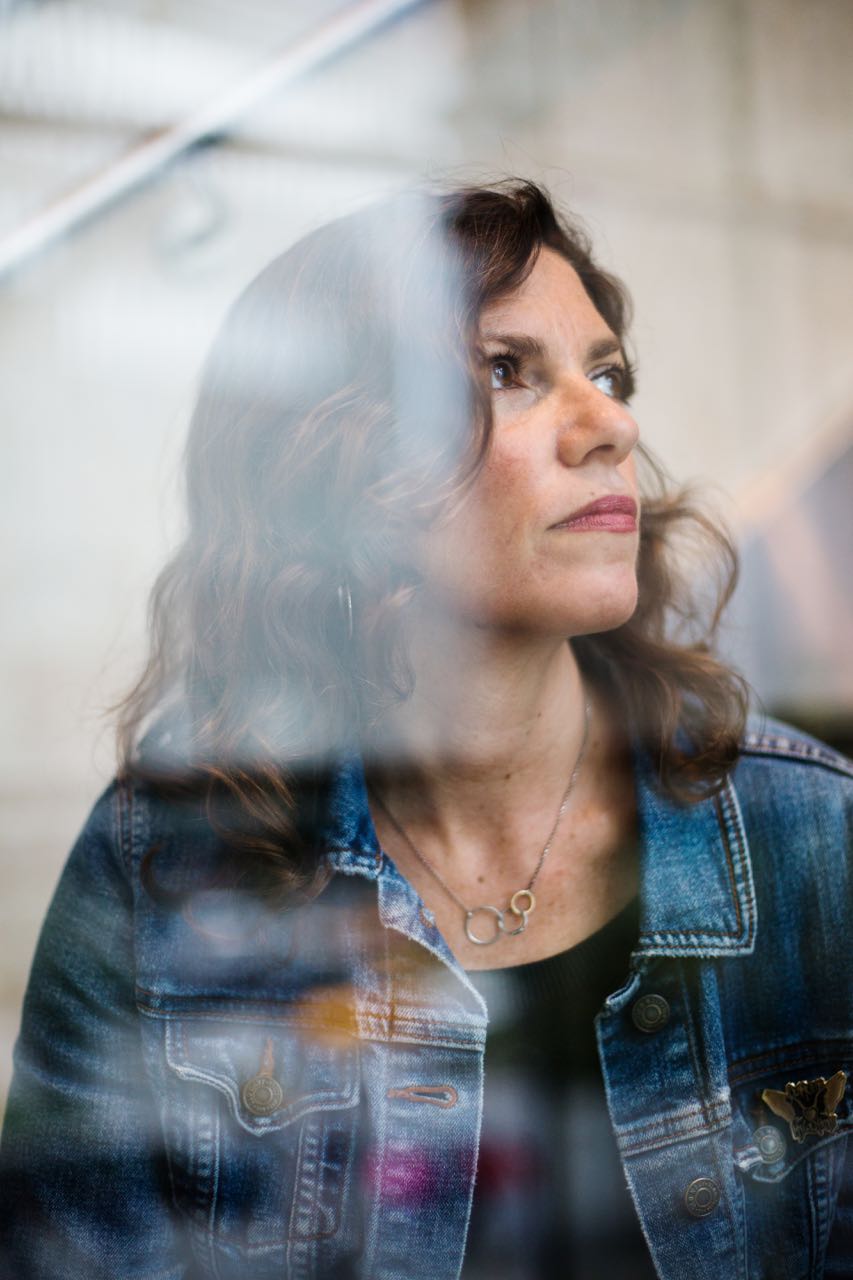
American theatre is very playwright-driven, both in terms of how work is developed and most programs for emerging theatre artists are for playwrights. What do you think are the biggest improvements that can happen as part of the development system from a directorial standpoint? Either in terms of developing the work or from a career development standpoint?
Kimberly: I’m all about mentorship. There’s something about, “When would we have ever all sat down together as a group? When would we have the opportunity to meet each other?” So I think that some of it is about mentorship in terms of connecting people at various stages in their careers, and seeing that the door gets opened and, okay, so I knocked down the door, and that was really hard, but then how can I keep pushing that door open with my brute force so that Whitney can then walk through it, and then maybe it’ll be a little bit easier for Whitney to hold it open for Candis? How are we doing that for one another? What’s going to help me make the work is to know that I’m a part of a larger network of people that I can call. It is that sense that these playwriting residencies are important because playwrights are getting to talk to each other and share their work with one another. And actors get to have that in a rehearsal room with one another, and there isn’t a normal forum in our development for directors to hear one another, and that’s the thing that’s been lacking and that I’m seeking. I think that it will actually make the work better.
Whitney: I sat in on a meeting recently with all these people that have influence over resources, the resources that pay us, and they actually didn’t know what a director did. And that was really fascinating to me. People don’t actually know what we do. It’s crazy. I know it seems impossible, but it’s not. So I think one thing is just sharing information, both within our artist community but also with other people who are not artists, who are not directly related to us, and helping them understand that we walk in step with playwrights.
Kimberly: And that’d be really cool too, if directors were on those panels about the allocations of funds. Like, what writers are we investing in, what stories are we wanting to tell? Because we eventually end up telling them. Our work is driven by who got the grant. What if we were involved in that decision?
Whitney: Because it’s not random. We all chase the grant cycle, so…
Rachel: As of recently, I have been working commercially, so I’m outside of the grant cycle at this particular phase. It’s a very different monster, working in commercial theatre. I enjoy it because it is less about, “Oh, well the writer has the final say, end of story, you can’t change it.” It’s like, “Great, that’s not working, let’s change it immediately.” But the thing for me is to just keep the collaborative conversation with people. Sometimes you luck out and you have a writer that’s like, “Let’s just make this work. You tell me what you need, and I’ll get you those pages tomorrow,” or, “Do you have any ideas on why this isn’t working?” So the director and the writer are working in tandem. Sometimes we don’t have that opportunity, and then there’s friction in the writer-director relationship. I’ve had instances in the past where the writer has hung up the phone on me and then wouldn’t speak to me for two days because I had asked them to make a change. But trusting each other and keeping ourselves open to possibilities is the way we move forward.
Ilana: I want to piggyback off of what Whitney said. I think part of the problem is that so many people don’t know what a director does, specifically young writers don’t know what a director does. I’ve been hashtag blessed to work with so many incredibly talented young writers, and I love the work they do, but they have no idea what I do for them or what I can do for them. I think it would be really helpful if there was a program in place where directors could be paired laterally or work in tandem with these writers. Or if there was even just a crash course in who does what in the theatre, because when I get paired with writers, they think that I’m a producer, and then sometimes they move on when I’m not producing their show like a producer, and that’s really frustrating because I will give it everything I can and I will call in all my resources, but at the end of the day my job is to direct, and they get mad when I’m not fulfilling the producing responsibilities. And I think New York is a writer’s town. If it comes down to writer or director, people are always going to choose to go to the party with the writer. And I wish there was some way to know that we’re all just cheering for the same team, you know?
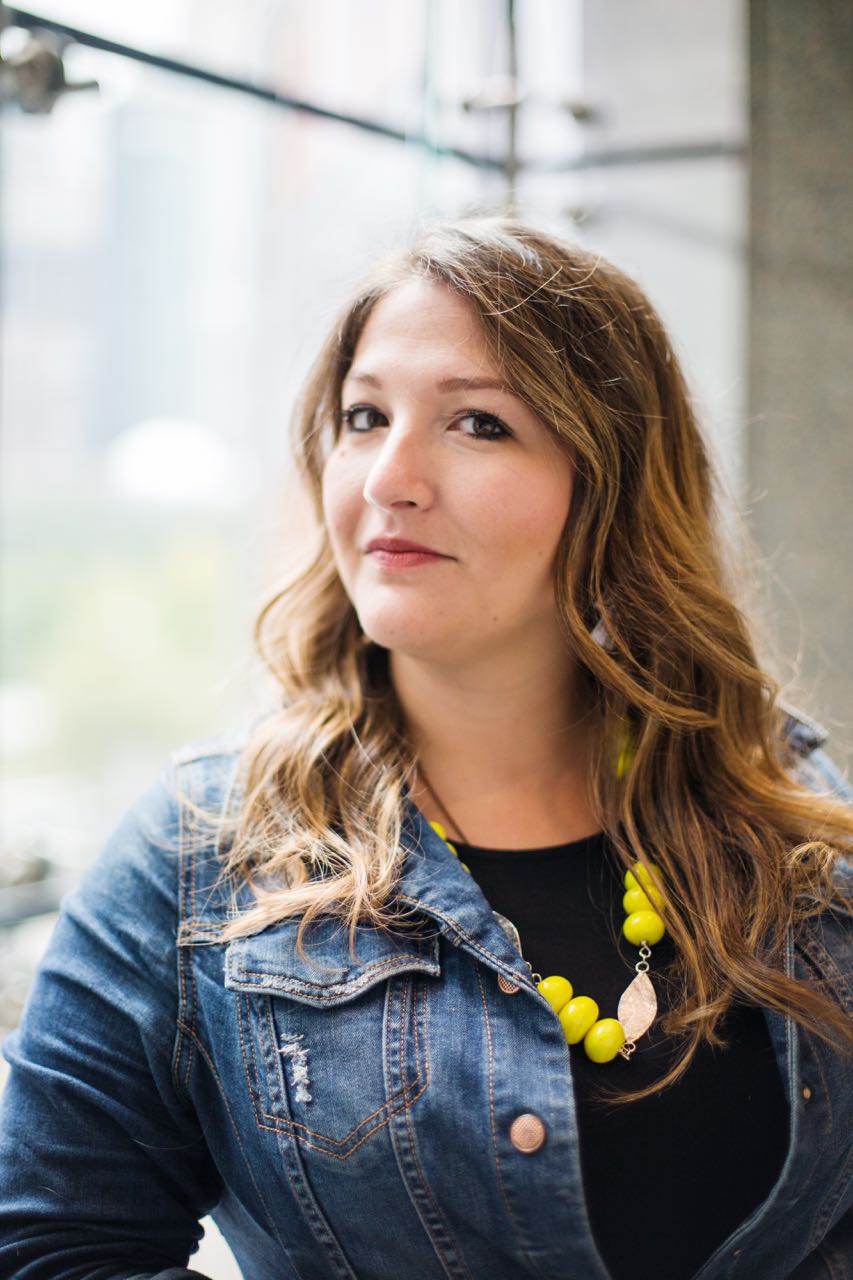
Kimberly: I think it’s interesting, in terms of why no one knows what a director does, because what a director does is different all the time. What we all do is different every time we do it. I know I’m a different type of director depending on the room or experience that I’m in. I think it’s like a writer’s world because they are generating the story; it does come from them. Yes, we help shepherd it and mold it, and sometimes are partners in the actual writing of it, but it’s theirs. They made it. So I guess I’m okay with that, in many ways. And then I think it’s also different in Europe. Or you look at a director like Mary Zimmerman, where she’s creating authorship in an auteur kind of way over the work, and so that’s different.
Whitney: Which I love. I feel I meet so many who have tabooed the word “auteur,” and it really frustrates me, because I love that idea that directing can have a form of authorship as well. And unfortunately, we don’t have a thing that we turn in, that’s like, boom, “There’s the copyright, buy it.” I’m like, how in American theatre can we have authorship too?
Sash: That’s what I was just thinking. Going to a really rudimentary level, playwrights can send their plays out to theatres, and that’s how people get to know a playwright’s work. And until you get to a certain stage of your career as a director, people aren’t necessarily going to know what it is you do and what you can provide. We were just talking, before the interview started, about websites, and how do we increase our visibility, and how do we promote our work? I think that that’s a question that I would loft. We don’t have the answers yet, I don’t think, of how to most accurately represent ourselves.
Candis: Back to what Ilana was saying, commercially, this feels like a writer’s town. If someone has a premiere and they are asked who they want their director to be, they have that answer set up. If you’re an early career director, you’re not going to be sought out first.
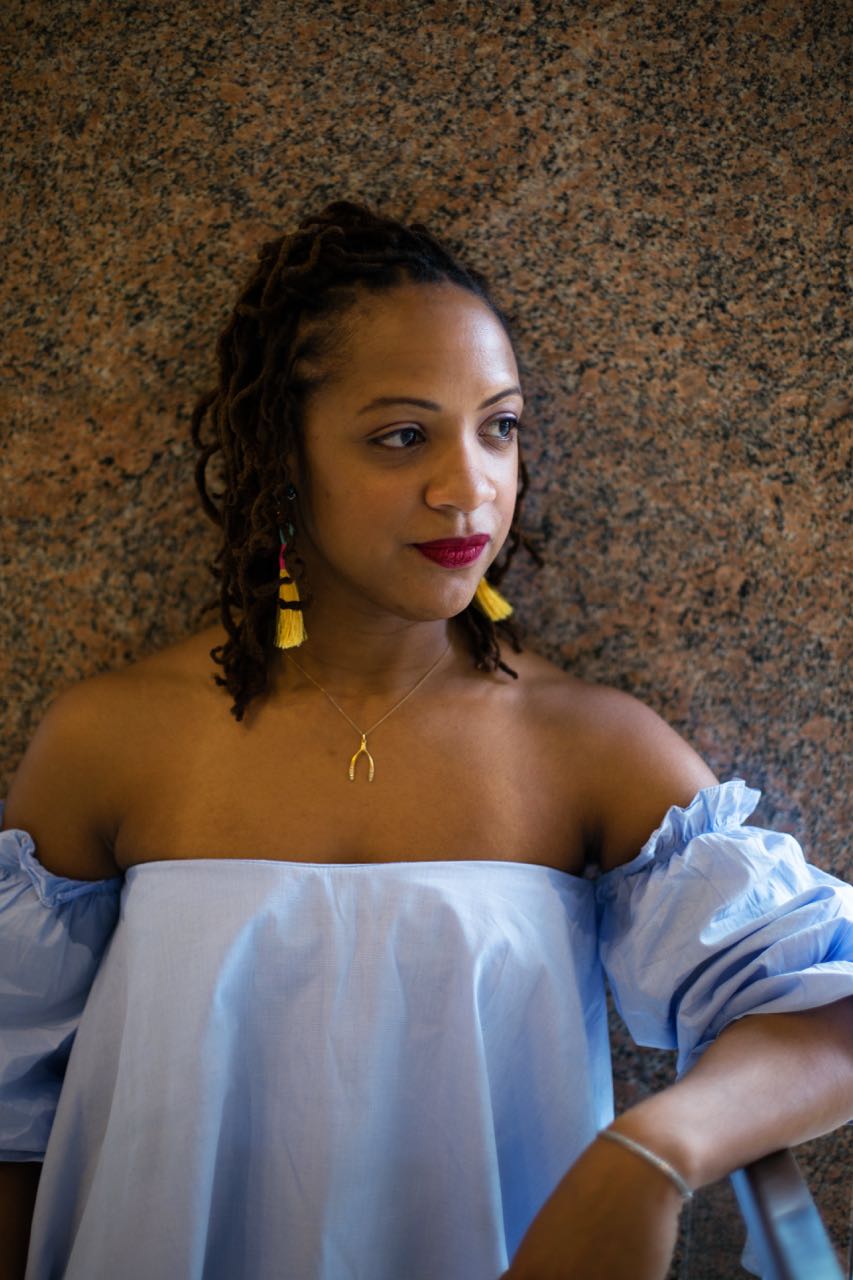
Let’s go back to mentorship and talk a little about people’s experiences with that. Where have you all found there needs to be more of it, and where have you found the problems are? Do you find people talk about mentorship more than they actually do it? Has the mentorship conversation evolved?
Whitney: I’ve had a lot of positive experiences in what I like to call peer group mentoring. Just lateral mentoring and group help. I think it’s very, very positive because what I do, it’s going to be so different than what you do, and I’m going to get information that’s going to seem like nothing to me, but could be everything for someone who’s adjacent to me. It’s been very positive for me to be talking to other women, and just talking. It might seem like nothing, but information comes out. And then in terms of more traditional mentorship, I think that can be frustrating because everybody’s so busy, and I think the word mentorship can put stress on someone. I haven’t had a lot of success in being like, “You are my mentor, do everything for me.” I don’t think that works as well. Even with people I identify as mentors, I try to still think of them as collaborators, and I get more out of it if I can give them something and then they can give me something. I think if you are in some kind of collaboration with your mentor, you’ll get more out of it.
Kel: I’m finding that I’m trying to focus more on who I’m mentoring, and just trusting that then the mentors that I need will come my way. I do love what Whitney’s saying about it being reciprocal. I learn a lot even if I’m talking to somebody who’s younger than me. And I think getting to the point of being able to—like you were saying Kimberly—have that phone call. To me, it’s even less about like, “Oh, I need someone who’s going to go out to see a play with me or have dinner with me,” and it’s more like starting to have some shorthand, so it’s like, “Hey, I’m in a really difficult place in this particular rehearsal process,” or, “I’m interviewing for this position,” or, “I think I may hire this lighting designer, what do you think of that?” And that can be a quick, but very candid, email or text or phone call with somebody that I trust, and whose work I go out of my way to see. I think it’s about seeing each other’s work, I’m really trying to do that even more.
Kimberly: I think it’s something that can exist not in just a project-to-project way, and that is where I feel like we’re lacking, having that kind of long term conversation where you’re seeing someone’s work over a period of time and their growth as a human being—not just like, you assist someone on a show, and for that period of time you’re learning from them. I think so many times now people get assigned to someone, or given someone for a specific moment, rather than crafting lifelong relationships, and that’s when we’re going to have the deepest experience of them, which is like, “Okay, I need help with this one quick answer,” or, “Let’s go for a long walk and talk about our feelings.”
Ilana: I think because women are behind, because we entered the work force later, our relationship with mentorship is different than males, and I think we need to pay attention to that. So I, in addition to seeking mentorship anywhere I can in this industry, I find myself also seeking mentors outside of the theatre industry, and that has been incredibly valuable. I’ve been seeking mentors in the arts administration field, and that has been very helpful, and also my friends working at Actors’ Equity, we’ve formed a lady boss support group, and we text each other with problems that we’re having, and we help each other work through them, and that’s been incredibly helpful. I’ve also found a difference in my mentors generationally, and it may have to do with their relationships with their mentors or lack thereof in their lives. Look at the older and more seasoned directors. I don’t think they had any female mentors in their lives, so they had to elbow their way through to their success through the old boys’ club. Whereas maybe the more middle career directors have had some exposure, but… I’ve just noticed a change in attitude generationally between my mentors, and I’ve made a commitment to only be mentored by female directors and only mentor other female directors, because I think it is so different for us in this field.
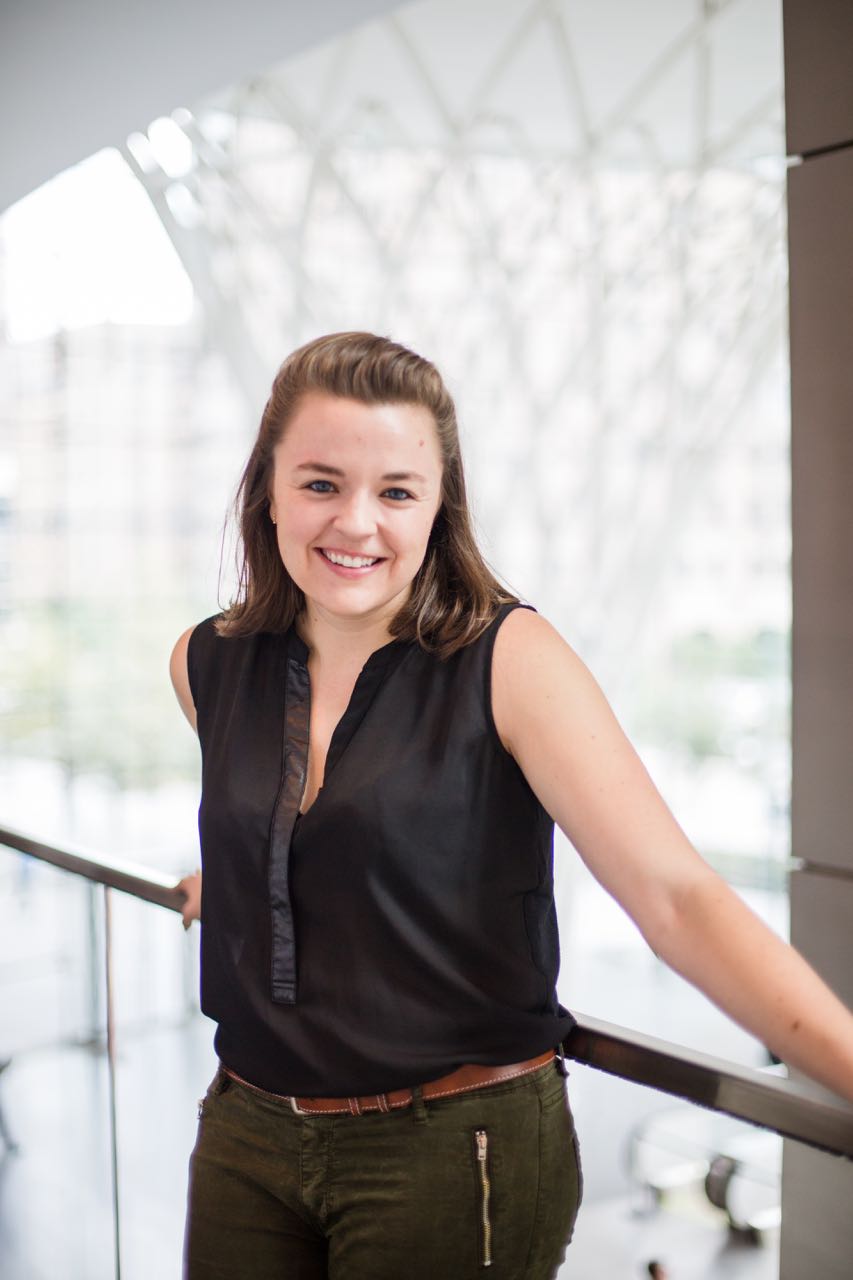
Sash: That’s really interesting. I didn’t at all make that decision to only have female mentors. I probably have more male mentors than female mentors, just because it’s a slowly evolving thing of more women penetrating this industry. I try to have someone who I think of as a mentor from every decade, which sounds kind of flip, but I do think that each generation brings such a different perspective, and one particular one may not be right for me even though it’s very sage advice. So I think having, just in general, diversity of opinions, diversity of resources to pull from, diversity of ideas and culture is so important in all aspects of trying to make a decision.
Candis: I also find it helpful to have esoteric stars that you think about, stars meaning galaxy stars, people who you may not always be in contact with, but someone that I really follow all their moves. Kamilah Forbes was a director/producer, and now is a boss, running the Apollo. When I was growing up in D.C., I watched her really run and create these spaces, and we haven’t talked much—I check in with her now and then and she probably doesn’t even know I sort of call her my mentor—but I follow her steps and I can really track where she’s going, and for her to be an inspiration as a black woman in the industry is really powerful for me, just visually and for manifesting what I want. Also, like Kwame [Kwei-Armah] knows I call him my mentor, but I follow him religiously because he’s also really running theatres and creates these really great rooms. So people that you may not always keep in touch with, but visually have your mind on is really helpful, too.
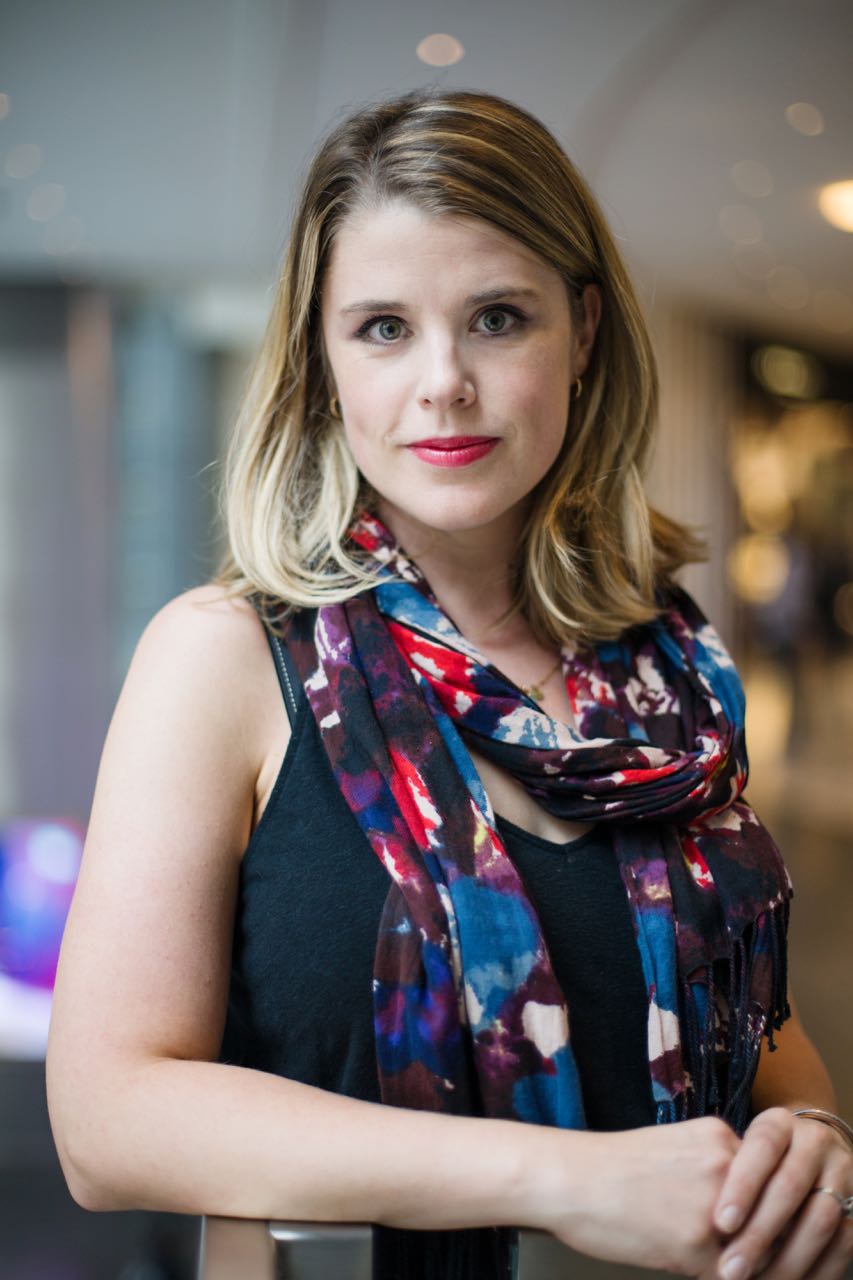
I wanted to talk a little about being in the room and being in charge, and how you have all learned to do that, especially in terms of being an authority figure. Are there any issues you’ve had with that, like people assuming you were the intern, and have you found there are different challenges at different levels?
Rachel: For me, it’s a cross-pollination of, yes, being a woman, but also, yes, being a young woman, and looking significantly younger than I am. So I get the “intern” or the “assistant,” or I tell people about a show I directed and the first question is, “Oh, did you assist? Who directed that?” And it’s a constant thing. At auditions, they think I’m the casting assistant always, as opposed to the director. So you just have to brush it off, and be like, “No, I’ve got this, I’ve got this.” And you don’t fight for it. When you fight for it, you lose everything. If it’s, “No, excuse me, I’m in charge,” you’re like the small little purse dog yapping to get the attention. That’s when you’ll never get it. But when you just take a breather and do a little internal yoga, then you earn their trust pretty quickly. But it has taken me many, many years to shape how that works for me, because there comes a point when, after 10 years of people thinking you’re the assistant, it’s just like, “Oh my God. I’m an adult.” So that certainly is something that I face daily.
Kel: I just try to listen to my instincts, honestly. I try to listen to my instinct when I’m meeting with a designer, or if I’m in the room with an actor. Sometimes there’s auditions where if it’s a male playwright and I feel like that actor is directing everything directly to the male playwright, I probably won’t be thinking, “I’m going to cast that person. “
Whitney: I just went through that, it was incredible.
Kel: And they don’t even realize they’re doing it.
Whitney: I sat through an audition with someone else who is a white male director. And I understand, they’re just not used to being directed by a black woman. They apologize to me all the time, they’re like, “I’m so sorry I behaved that way, I would’ve never…” I’m like, “I know, I know, we’ll just have to keep working on this, because we’re going to do this for the next six weeks.” But I was sitting in this room, and every single actor in there [did that]. I wonder, do they realize they’re doing it? You think they don’t? I’m not sold on that.
Kimberly: It’s systemic. It’s the larger question, it’s structural. I’m definitely the oldest person sitting at this table, and it doesn’t change. I’m still the assistant, and I have two children, and I’ve been doing this for 23 years. And yes, I look younger than I am, and I’m five feet tall, but it’s like, what hill am I going to die on, and I got really bored of that one. I just don’t care. It’s like taking a deep breath and then continuing, “You know what, I’m the director because I’m the director.” That’s it. I don’t have to assert that, I don’t have to do anything about it. What I’m going to do is just do the work. And I love what you said, “Well, we’re just going to keep doing this tomorrow, so we’ll figure it out.”
Whitney: I’ll see you tomorrow, yeah.
Kimberly: So I’ll see you tomorrow, and hopefully by tomorrow you’ll feel better, because I feel fine. I feel great about what I’m doing, so I hope tomorrow it’s easier for you.
Whitney: When do you teach, and when do you just work.
Kimberly: I don’t want to teach. I don’t want to do it. I like teaching students. I don’t want to teach men. It’s not my job to teach them.
Whitney: I know, but then someone was telling me, “Oh, we have to [teach them],” and I’m like, “I don’t know if I have to teach you anything.”
Kimberly: We have to all learn to live in the world together, and I think it’s important for us to draw attention to like, “Hey, you may not know that you’re doing this, but the way that you’re speaking to me is as if I’m not your collaborator. So it would be great if, moving forward, we can try to adjust the way we speak to one another.” There’s a thing of just, we have too much work to get done that I just don’t have time anymore to do that. It can change, but I think we just have to walk into the room and sit down, and if they start talking to the playwright, you just raise your hand like, “Actually, over here, hi, I’m Kimberly, I’m the director, I’m not quite sure that we’ve met.” So, as we move forward, just continuing on. We correct the behavior with our comfort level. I spent a lot of years like, “Stop calling me a female director.” I hated it. And now I love it.
Kel: I changed my name. My full name is Kelly, and I didn’t think Kelly Haney was serious enough to be a director, so I rebranded myself at 21 on my thesis in undergrad as Kel, because I didn’t want anyone to associate my work with being directed by a woman. That’s how I started.
Kimberly: Yeah. I hated it, and now I’m like, “No, I am.” And a lot of times I ask maybe more questions than I should, and I offer hugs, and make sure everybody has enough snacks. And I also happen to be a really great director.

Ilana: I was in an audition room recently, and we had to move from one room to another because we were running over, and one of the producers was in the room, and he had a backpack when he arrived, and when we moved rooms, he looked at me and he said, “Would you be willing to grab my bag?” And his hands were free. [In my head] I was like, “Oh I’m sorry, are your arms now broken, from when you arrived to the room?” and I just stood there paralyzed because I felt like if I accepted to carry the backpack, then I would’ve been accepting that dynamic for the rest of the process, and I was not okay with that. And so I looked around the room panicked, and the associate producer, who was a male, saw the panic in my eyes and said, “Let me grab that for you.” And I appreciated that. Something I’m struggling with is having the courage to be myself in the room, and I think to be comfortable with yourself takes a lot of discomfort. And so just being comfortable with that discomfort, because I think we’re all feeling especially uncomfortable these days.
Rachel: I once had a producer ask me to answer his phone for him. He was getting a call from an unknown number, and he asked me if I knew the number, and I was like, “Nope.” And he’s like, “Can you answer it for me? Answer this for me.” Hands me the phone, and I just put it on the theatre seat and said, “Answer your own damn phone,” and I walked away. That was a really exciting moment.
Sash: A lot of what’s being said right now is really resonating with me, and I think the world is how it is, and it’s going to change, but it’s going to be really fucking slow, and the only way that we can help that is by what we bring into the room. And I think for directors—I know for myself, going into a room, I’m trying to train myself to be as open as possible. And so when I’m presented with that, and when it’s thrown in my face, my gut response is to question myself. And so it’s really more about what I’m doing inside of retraining myself to just trust myself.
Whitney: My mother’s not in theatre but she gives me some of the best advice, and she’s just like, “Don’t take it.” She’s like, “Even if you, on the outside, behave like everything’s okay, and you beat yourself up on the inside and you doubt, then you took it.” She’s like, “Don’t take it.”
Candis: I just want to add: treat your Assistant and Associate Directors well.

